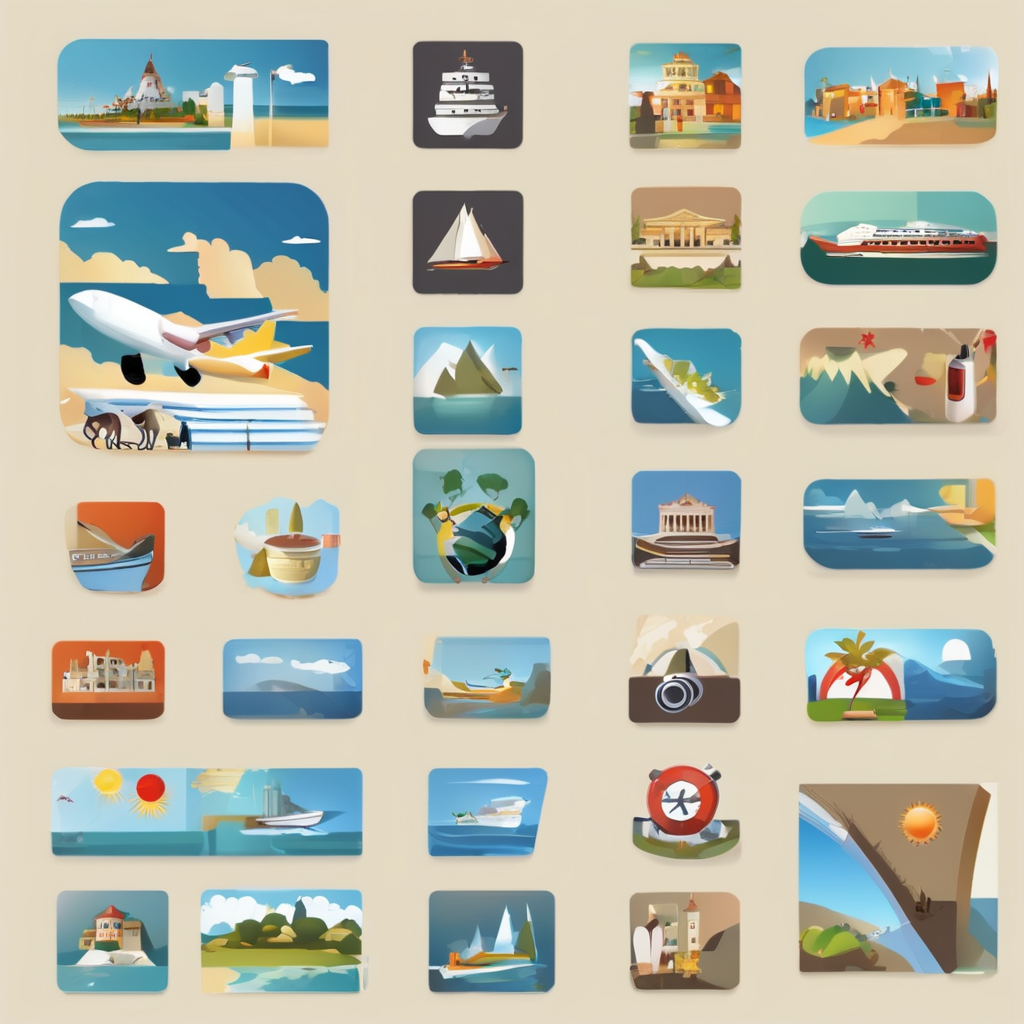Overview of British Toy Crafting Workshops
British toy crafting workshops offer immersive experiences that celebrate the artistry of traditional craftsmanship. Rooted deeply in history, toy crafting in Britain has played a significant role in cultural development and preservation. Participants in these workshops can expect to connect with the country’s rich heritage through hands-on activities.
Across Britain, there are numerous opportunities to engage with local artisans who masterfully pass down their knowledge. These workshops provide a rare chance to learn directly from experts, making them invaluable experiences for those interested in preserving traditional crafts. From wooden toys to intricate dolls, the emphasis is on maintaining the authentic techniques passed down through generations.
Also read : Unveil Top UK Destinations for Immersive History Tours: Explore Britain’s Rich Educational Legacy
Understanding the importance of engaging with local artisans is crucial for appreciating the depth of these workshops. By doing so, participants not only learn the craft but also contribute to the continuation of cultural heritage. Besides being educational, these workshops offer a unique way to experience British culture.
Offering both historical insights and practical skills, these crafting workshops transform ordinary sessions into meaningful journeys into the past. Participants leave not only with a tangible creation but also with a deeper understanding of Britain’s timeless craftsmanship.
Also to discover : Discover the Premier UK Destinations for Enthralling Guided Tours into the Fascinating History of British Glassmaking
Workshop Locations and Scheduling
Amidst the vibrant landscape of British toy crafting, the choice of workshop locations plays a crucial role in planning an enriching experience. Famed spots like London and Edinburgh stand out, each boasting a rich legacy in toy crafting. These cities not only offer practical workshops but also serve as cultural hubs where participants can immerse themselves in the traditional art of toy creation.
Popular Locations for Workshops
Across the UK, certain locations are revered for their historical toy crafting heritage. Towns like Bath and York provide opportunities to explore this timeless craft. Such places are embedded with artisan communities ready to share their extensive knowledge.
Seasonal Scheduling Opportunities
Timing your visit is vital as seasonal trends impact the availability of workshops. Winter months often see festive-themed sessions, while spring may bring workshops focused on floral and natural themes. Scheduling can be flexible, yet proactive planning is advisable to secure spots during peak times.
Booking Processes and Deadlines
When it comes to securing a spot, booking early is essential. Workshops in popular locations fill up quickly, and understanding the booking processes can enhance your chances. Checking deadlines and making reservations in advance ensures a seamless and stress-free experience in the vibrant world of British toy crafting.
Types of Workshops and Skill Levels
Discovering the variety within British toy crafting workshops is key for enthusiasts of all skill levels. From urban centres to quaint villages, these workshops offer a first-hand experience into the world of traditional craftsmanship.
Introduction to Beginner Workshops
Beginners are warmly welcomed through specially designed workshops that introduce the basics of toy crafting. These sessions cover essential techniques and provide hands-on experience under the guidance of seasoned artisans. Ideal for novices, these workshops instil confidence and ignite creative potential.
Intermediate and Advanced Crafting
For more seasoned individuals, intermediate and advanced workshops cater to enhanced skill levels. Participants delve into complex techniques, allowing them to refine their crafting abilities. These immersive experiences promote growth and mastery, often exploring innovative methods in the toy-making art.
Special Themes and Projects
Unique themes and projects are often featured, offering enthusiasts the chance to explore distinct techniques. These special themed workshops may focus on seasonal motifs or historical styles, providing enriching experiences for those eager to explore British toy crafting’s rich tapestry. Whether one seeks foundational skills or aims to master advanced techniques, there is a tailored experience awaiting every participant.
Pricing and What to Expect
Participating in British toy crafting workshops involves various considerations, most notably the pricing. Typically, these workshops incur costs depending on skill level and duration. Basic sessions might start at approximately £50, offering essential training and covering starter materials. In contrast, intermediate or advanced workshops, often spanning several days, can reach up to £200, reflecting the intensive skill-building and personalised guidance received.
Workshop expectations include receiving necessary tools and materials as part of the package. Participants usually don’t need to bring additional supplies unless specified in the workshop description. This ensures a seamless experience, allowing individuals to focus purely on learning and creating.
Participants can anticipate leaving with a tangible creation—like a handcrafted toy—as well as a comprehensive understanding of traditional techniques. These takeaways are not only physical but also experiential, deepening one’s appreciation for the craft.
Additional costs may include travel and accommodation, especially for workshops held in remote or touristic locations. It’s wise to consider these when budgeting. Learning about these aspects ahead of time helps optimise the value and satisfaction derived from the immersive experience workshops provide.
Cultural Significance and History
British toy crafting is a vital aspect of the nation’s cultural heritage, illustrating an artistry passed down through centuries. Rich in tradition, this craft has evolved from being a simple pastime to a respected art form, reflecting both local and national identity. The history of toy crafting in Britain is grounded in community collaboration, offering insights into societal values and customs over generations.
The evolution of toy crafting reveals its significance in Britain’s cultural tapestry, where artisans not only created toys but also preserved stories through their craftsmanship. Workshops focused on toy making are more than just practical lessons; they are gateways to understanding a nation’s past, allowing participants to feel connected to British history.
Toys have played a role in shaping childhood experiences, and by understanding their historical context, we gain insight into community traditions and values. The tradition of toy crafting has maintained its role within local culture, strengthening community bonds and ensuring the continuation of these skills. This enduring relevance highlights the craft’s importance in fostering cultural continuity, a testament to its unique position in Britain’s cultural landscape. Participants engaging with these workshops not only create toys but weave their stories into the fabric of history.
Testimonials and Participant Experiences
Engaging with British toy crafting workshops offers participants a wealth of personal growth and community interaction. Past attendees have shared insightful testimonials about their transformative experiences, highlighting how these workshops enhance both skills and knowledge. Many describe a newfound appreciation for traditional craftsmanship, recounting how hands-on sessions allowed them to grasp techniques that mere observation never could.
Personal Stories from Workshop Alumni
Alumni often recount their path through immersive experiences, where they created intricate toys, each piece reflecting traditional methods passed down for generations. Such personal stories underscore the workshops’ role in nurturing creativity and fostering community bonds.
Impact on Skills and Knowledge
Participants report significant improvements in their craft, noting how detailed hands-on experiences sharpened their abilities. Workshops tailored for different skill levels provide an ideal environment for both novices and experienced crafters to expand their knowledge base and explore new creative avenues.
Overall Satisfaction Ratings
Feedback consistently praises the structure and content of these workshops, with high satisfaction ratings reflecting their value. Many recommend the workshops not only for the craft itself but for the joyful opportunity to join a vibrant community passionate about preserving traditional craftsmanship.
Tips for Planning Your Visit
Participating in British toy crafting workshops can be immensely rewarding, and thoughtful preparation will ensure you derive the most from your visit. Proper planning includes bringing essential items and connecting with local artisans, enhancing your overall experience.
Preparing for Your Workshop
When attending workshops, consider packing practical items like a notebook for jotting down insights, comfortable clothing for easy movement, and personal protective gear if specified. These essentials ensure you’re prepared for hands-on activities, allowing you to immerse yourself in the learning process.
Local Attractions and Accommodations
Beyond the workshops, explore nearby attractions to enrich your visit. Many workshop locations are nestled in culturally rich areas, offering museums, galleries, and historical sites. To complete your travel planning, book accommodations well in advance, especially during busy seasons, to find suitable lodging that fits your preferences and budget.
Connecting with the Crafting Community
Engaging with the crafting community enriches your experience. Attend local artisan events or join online forums to foster connections with fellow enthusiasts. This interaction extends learning opportunities beyond the workshop, enabling you to refine skills and share experiences with a network that shares your passion for traditional crafts.


